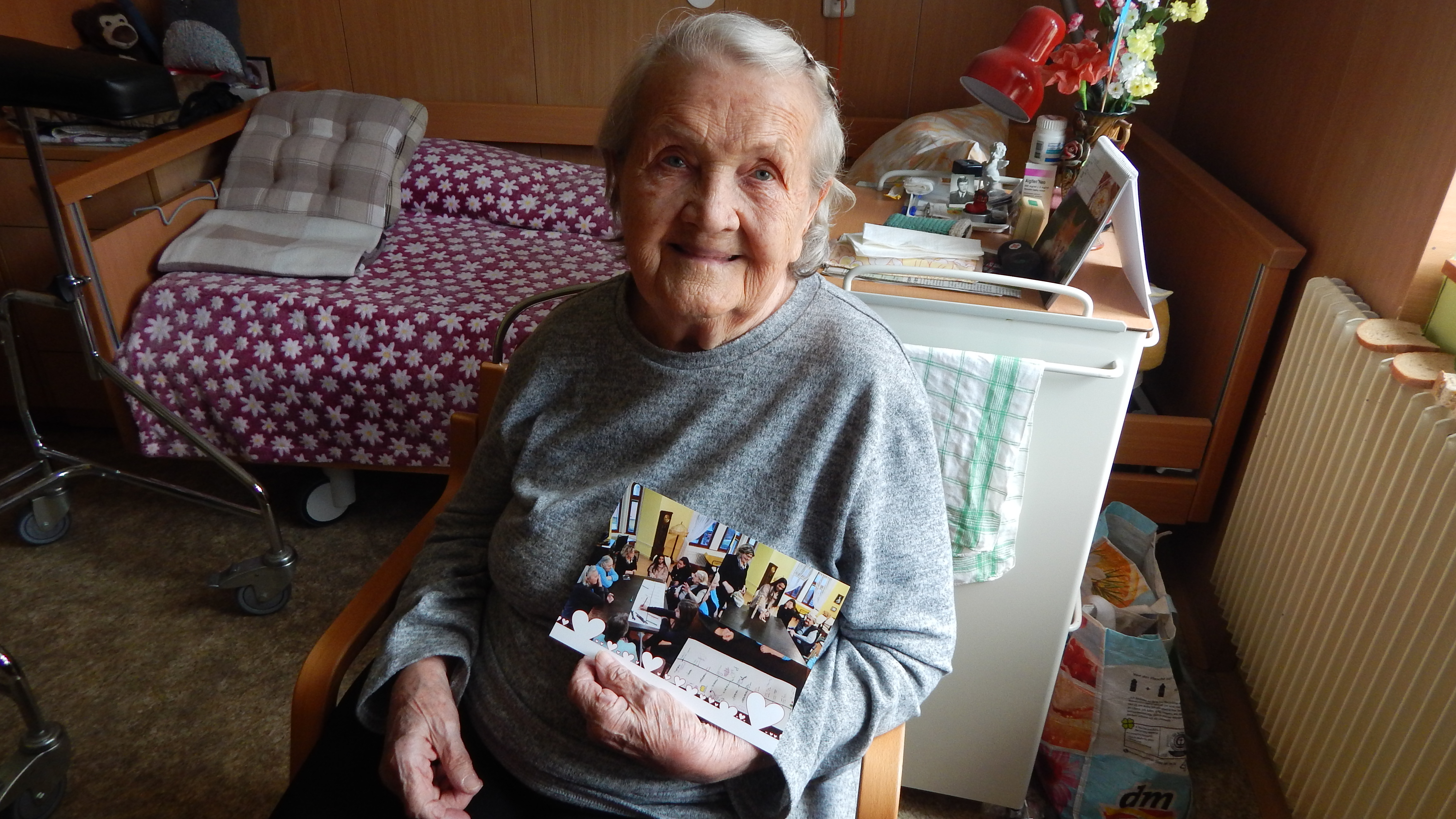Fact is, these days residents of seniors homes and orphanages can’t receive visitors and, to top things off, children in children’s homes can only go out in a limited and organized way.
We already reported on the online channel and videos we created for our children here. But what could be done, so that our grandmothers and grandfathers will not feel sad and isolated? Due to the limited sources of technologies in senior homes, we couldn’t reach out to them via the Internet. BUT, we at least could write to them or draw picture cards. And even a small thing as a postcard with photos and a nice greeting can warm a lonely heart. So, we set out to do just that!
It worked – and here’s one proof of the pudding:
Grandmother Maruška from the home for the elderly in Žatec, which we regularly visited with children from the nearby children’s home, even went through the trouble to write us an answer!
In the picture, she holds our postcard. Her kind answer really warmed our heart:
“Hi girls, Markéta and colleagues,
Thank you for the card, which made me very happy. I can say that I had tears in my eyes. I liked our meetings and I’m looking forward to the next one. At this time, we can’t leave our rooms. When the weather is good, we can go out in the yard of our home, but we have to wear facecloths. We are also sorry that there are no group activities like the ones you organize for us. I often read books in my room, watch the news and how it develops outside. We wish you all good health and success at school when it is reopens.”
Another wonderful example are grandpas and grannies from a home for the elderly in Unhošt. The children from the neighboring children’s home, who were used to visit them regularly, thought about them even when visits were no longer possible. By sending them cards and pictures they made them very happy. These are important little things that help seniors to endure the period of isolation and offset the humdrum of their daily routines.
We are so very grateful that we still can help and reach out to them.
Author: Markéta Franke










